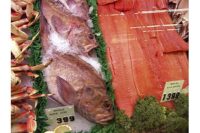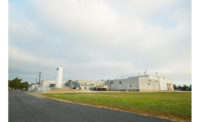High Liner Foods ceases value-added fish operations at New Bedford plant

Canada-based High Liner Foods Inc. announced plans to cease value-added fish operations at its New Bedford, Mass., production facility to reduce excess capacity across its North American production network. The remaining facilities provide sufficient capacity to meet the company's growth objectives going forward. This change does not impact its scallop processing operations, which are also located at the New Bedford facility.
"In 2015, we made good progress on optimizing our supply chain and sufficiently increased capacity at our Lunenburg, Portsmouth and Newport News facilities such that they are able, collectively, to absorb the production of our New Bedford facility and still provide sufficient capacity to meet our growth objectives going forward,” says Keith Decker, president and CEO. “The decision to cease the value-added fish operations in New Bedford is necessary to ensure High Liner Foods' continued ability to compete and grow. We recognize this is a very difficult day for the employees impacted in New Bedford, and want to thank them for their contribution to the American Pride business and High Liner Foods."
The New Bedford plant is currently the company's most underutilized manufacturing facility with annual production of approximately 40 million pounds. This production will be transferred to the remaining facilities by the end of the third quarter of 2016. The value-added fish operation at New Bedford currently employs 35 salaried employees and 167 hourly workers. There are 25 additional employees working at the New Bedford facility in the company's scallop business, which are not affected by this announcement.
"In 2016, our primary focus will continue to be on increasing sales volume and managing costs to improve earnings,” Decker adds. “We do not, however, expect to see volume growth on a year-over-year comparative basis until after the first quarter, due in part to a shortened promotional period associated with Lent in 2016 compared to 2015. Efforts to increase volume will continue to be supported by lower seafood raw material prices."
"We will complete outstanding supply chain optimization activities in 2016, including the transfer of New Bedford's value-added fish production to our other facilities, to achieve the full benefit associated with these activities, which we continue to believe will be a minimum of $20 million in annual costs savings on a run-rate basis, to be achieved by the end of 2016," adds Decker.
Looking for a reprint of this article?
From high-res PDFs to custom plaques, order your copy today!







